We hadn’t updated the blog since last October (!), so as well as trying to summarise our current position with regard to COVID and traveling- which has turned into a three-post mini-series, of which this is the first- we recently spent a few days putting that right. It was actually an especially good feeling reviewing photos and experiences a few months later rather than immediately after moving on, and, along with the boys, we even had a browse through some pictures from our first few months onboard- it sounds trite, but it’s true; it’s amazing how much Arthur and Theo have grown and changed!
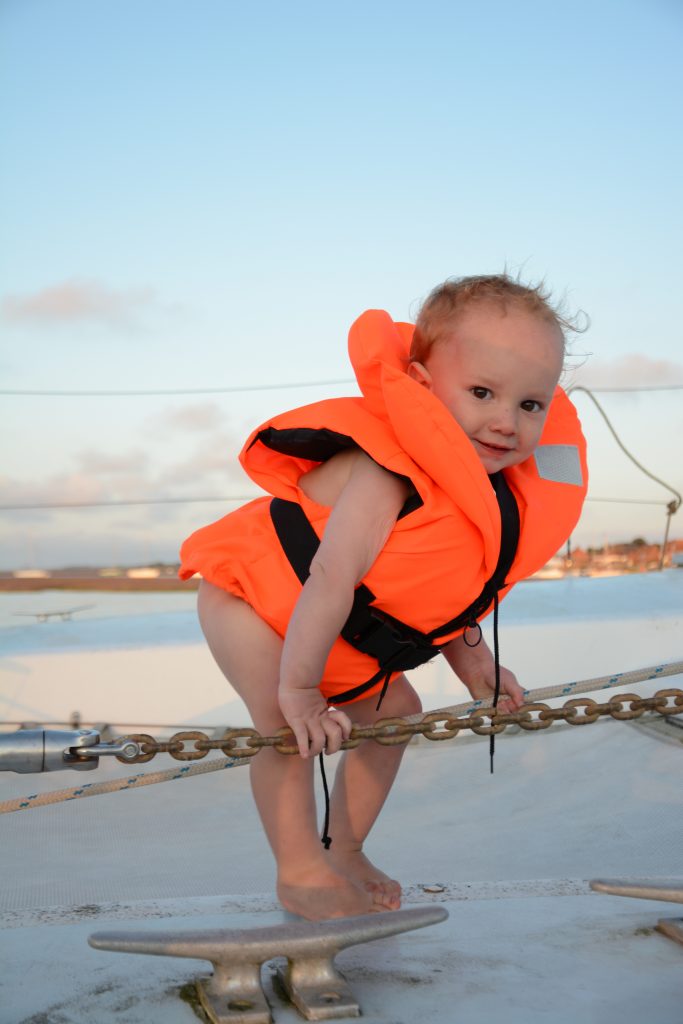
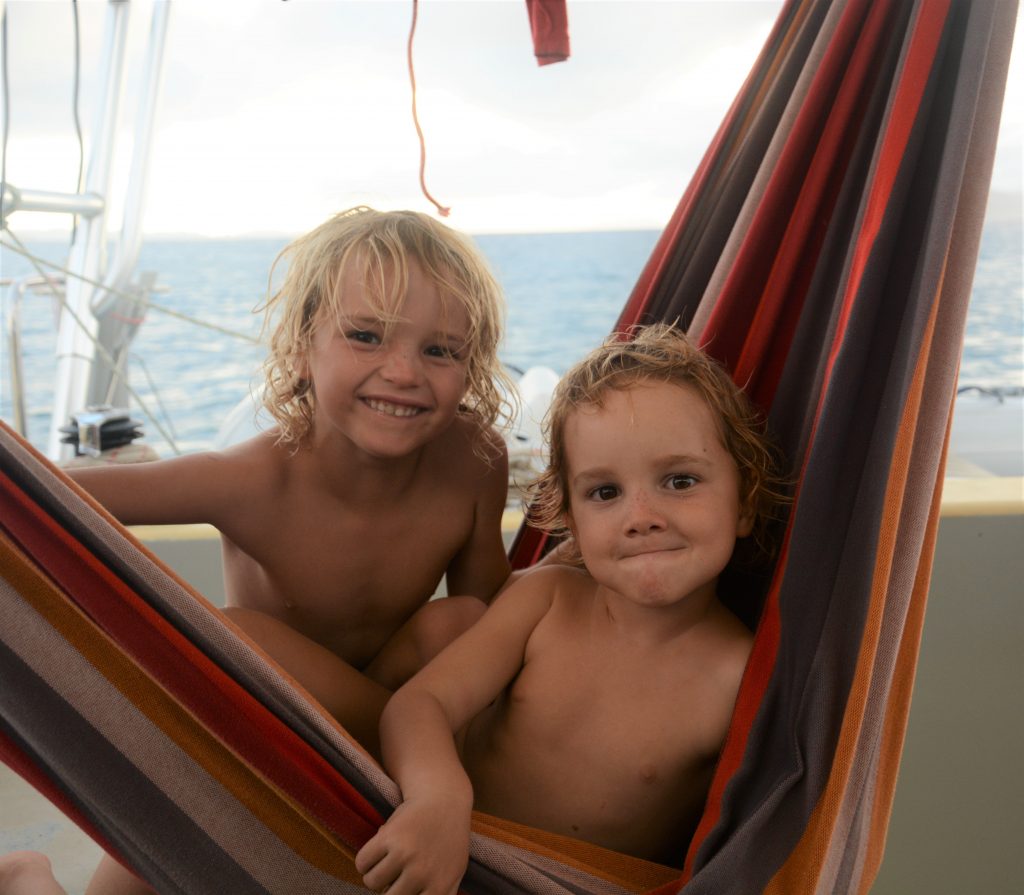

But reviewing our pictures also put me in mind of more carefree times. How was it only four months ago that we were eagerly awaiting Christmas and a visit from Nana G and Sean from England? And only two months ago we were planning just a month in the Dominican Republic, including a visit from Nana B from England, and Uncle Gordon and Sophie from New York?
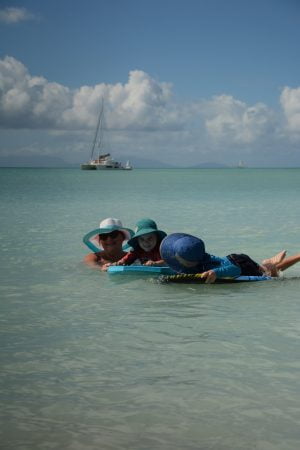
Vague doubts surrounding the viability of our more long-term plans arose when Nana B was forced to cancel her trip to see us due to concerns about a certain virus and her underlying health conditions. But the implications of the virus still didn’t seem real to me, even though Dave had been talking about its potential seriousness since Christmas- he likes to read up on this type of thing! Gor and Soph were able to visit, and, though there was talk of COVID affecting some further travel plans they had (which it obviously subsequently did), the Dominican Republic hadn’t taken any specific measures at this time so life was continuing as normal.
The first indication I had that our sailing plans might become seriously affected were reports from other cruisers- stories of boats leaving islands with COVID cases being turned away from their destinations. But events were moving quickly. We soon heard about new restrictions being imposed on movement to, from and around the Dominican Republic, and that some islands were closing borders. So, to allow us some time to go through our options, we requested an increase in our length of stay- however, immigration was no longer issuing extensions. Only a couple of days before, I had visited the Armada (Navy) to inform them we had returned to the anchorage here in Samaná from the marina (the Navy record all boat movements in DR, and movement between localities is only allowed with an officially issued Despacho), who told me getting a Despacho and movement would be fine. Obviously, the new restrictions were being issued quickly and, as a consequence, with little notice even to the officials enforcing them.
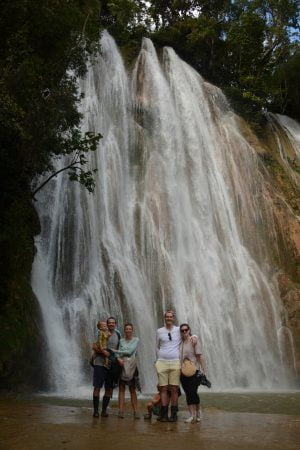
It turns out that staying longer than your initial visa states isn’t a big deal here- apparently, you just pay an overstay fee when you clear customs and immigration before leaving. This is fortunate. Our original plans had been to leave the Dominican Republic some time in April, head for Jamaica, and then to Belize by May. We’d spend as much of hurricane season (from June) in Belize as was safe, then sail to Guatemala’s Rio Dulce for the heaviest part of the season, taking the chance of a sedentary period to work on the boat- facilities and amenities in Guatemala for this are supposed to be excellent. With borders rapidly closing, and boats being turned away from both their destination port (and the port they originated from on attempted return), it was clear we weren’t going to be able to follow our plans. In fact, on writing this we can’t actually leave this anchorage to go elsewhere with in the Dominican Republic, either. We need a domestic Despacho to do that, which aren’t being issued, and moving without one means the Armada could force us to leave the country.
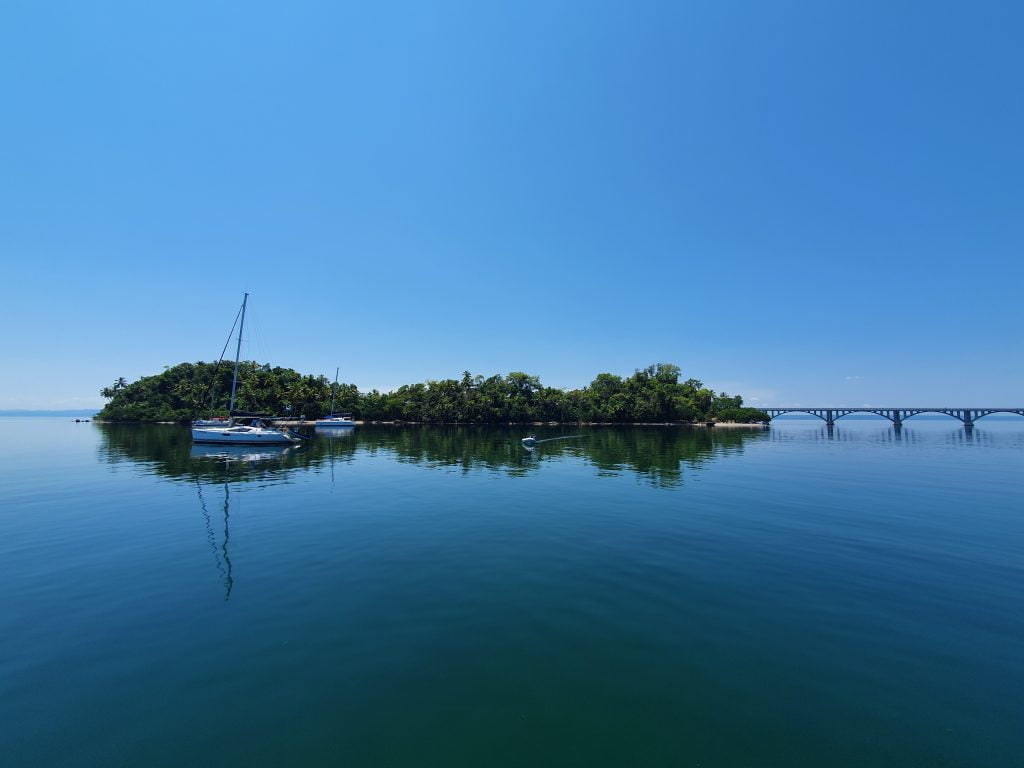
“But you’re in the Caribbean!” “At least everyday is an adventure!” I know what it must seem like. Cruising friends quarantined on other islands have heard the same, too. So what is it like here during COVID? Well, the quarantine is pretty much as it has been in the UK; it’s actually good to have some shared experiences with people back home, despite the distance. There is a 5pm until 7am curfew, no large gatherings are allowed, technically beaches and public spaces are off limits, only one person from your household is supposed to go out (only for essentials), masks and gloves must be worn in supermarkets, markets, etc., and only those businesses deemed ‘essential’ may open. Armed members of the Armada and Guardia show their presence in town and occasionally supervise queues for groceries- once an official spaced us all to 1m apart, but I think the lady behind me who had been leaving more than 2m was pretty peeved when he forced her to reduce this!
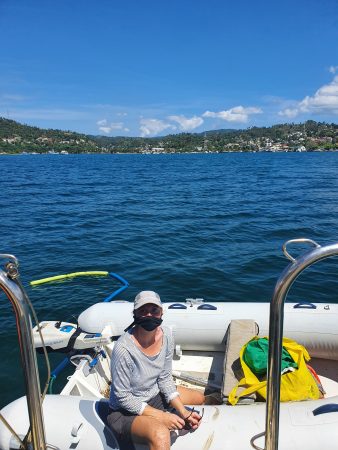
In reality, after an initially high level of cooperation, people are relaxing a bit, which is human nature I guess. However, given that less personal space is expected here than is customary in England, and there is typically far more touching during day-to-day conversation, as well as hugs/kisses on greeting, it’s obvious that people are adjusting their behaviour. Masks and gloves are generally worn, and shops won’t allow you in without one (thank goodness I made a very fetching one out of some leftover fabric and old bra straps!). But by this point social distancing generally isn’t as apparent as in the first couple of weeks of the quarantine measures being implemented-then-extended.
To allow disinfecting to take place, the public market is open only until 1pm and supermarkets generally to around 2pm (subject to unforeseen changes, as when I was locked into La Bodega to finish my shopping when they decided to close at 12pm). As a result, this area of town can be as much a hive of activity as it was before COVID measures started, and that queues are extensive (though recently this has eased as people settle into a new routine). Queuing in the heat for nearly an hour for groceries can be pretty frustrating anyway, but is even more so when many people don’t observe a ‘normal’ level personal space, let alone the 1-1.5m recommended here. My last shop, the guy behind me was so intent on staying close so he could overtake me on the infrequent occasions that the queue moved that I took to rocking side to side to hit him with my backpack. Once he fell off a low ledge and sounded rather cross. Despite such queues, people here don’t appear to be panic buying or stocking up on supplies (apart from cruisers like us!), and the atmosphere is generally calm and cheerful.
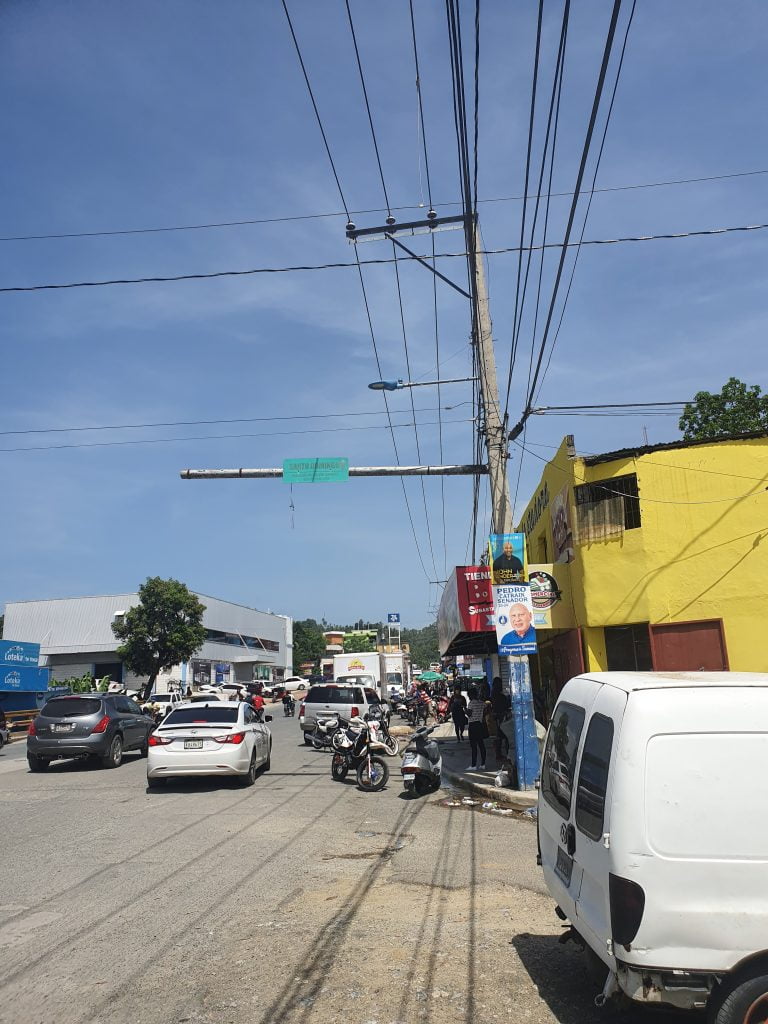
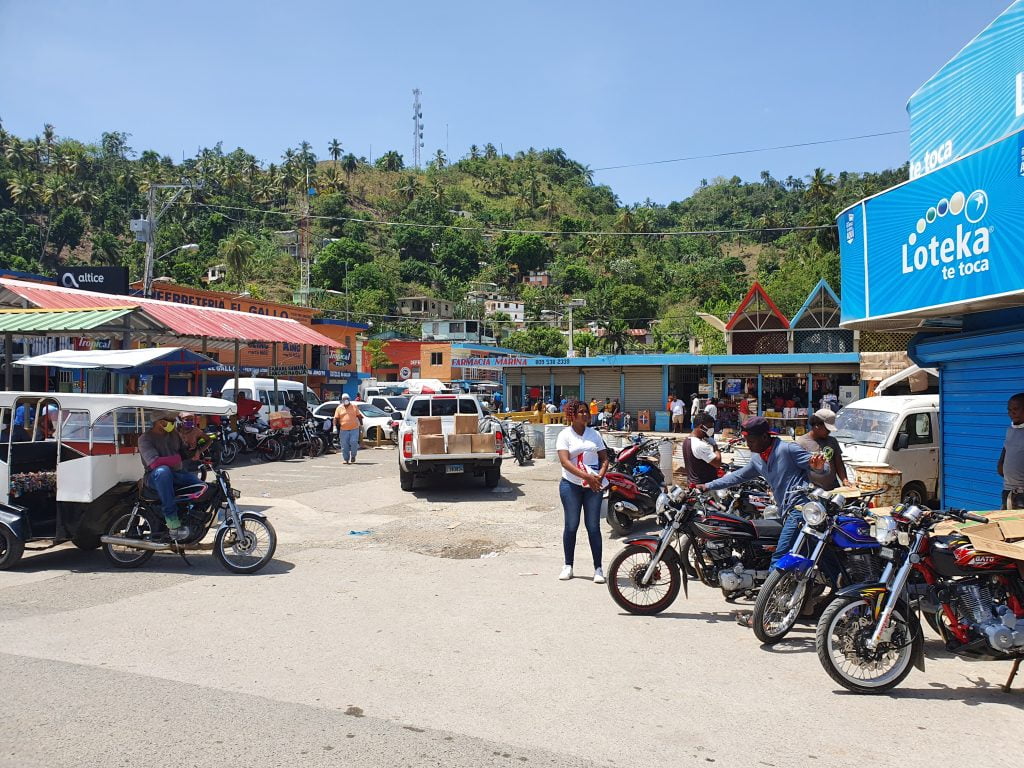
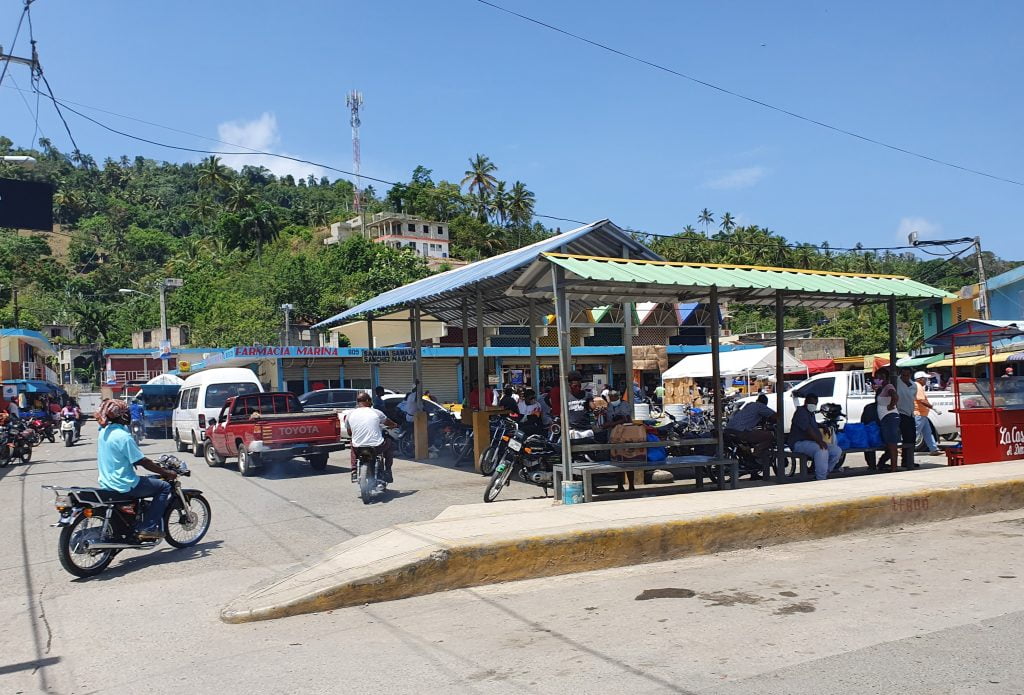
Many stores are opening regardless of the quarantine regulations, perhaps as government support is less extensive than in countries such as the UK. When we needed a part for the boat, local man, Richard ‘No Problem’, whose English is outstanding, helped me find a store whose shutters I have only even seen open around half a metre from the ground. I, perhaps naïvely, assumed that this was so that staff could check on the store and take deliveries, but apparently you should slip under shutter, conduct your business and the shuffle back out crab-like. I’m guessing they count as a ‘non-essential’ business, but can’t afford to remain closed.
To support the more vulnerable locals during the quarantine period, we’ve joined two other boats in our anchorage in supporting a local businesswoman to provide essential food to people around Samaná. Many of the people she is helping are elderly or infirm, especially poor, have large families or live in very remote areas, and so are unable to queue for or have little access to food supplies. Yocelyn creates food parcels from donations of food or money and then distributes them to those whom she feels aren’t receiving enough support. We have also donated the baby and maternity clothes we no longer need, which has the added bonus of freeing up some weight and space on the boat.
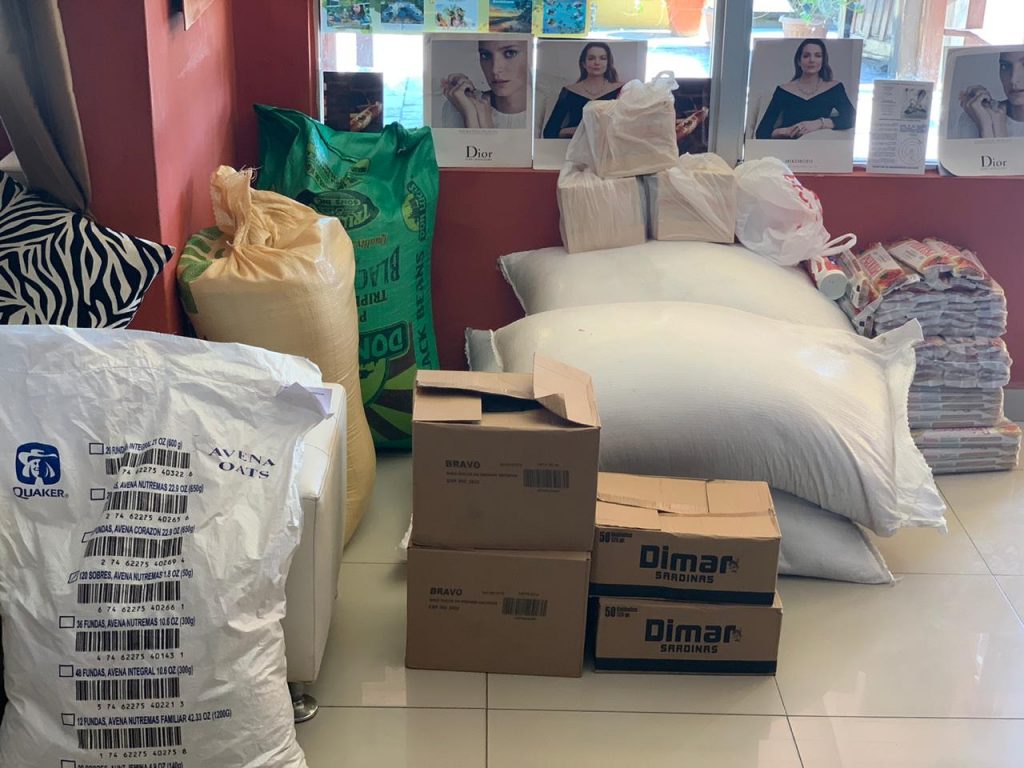
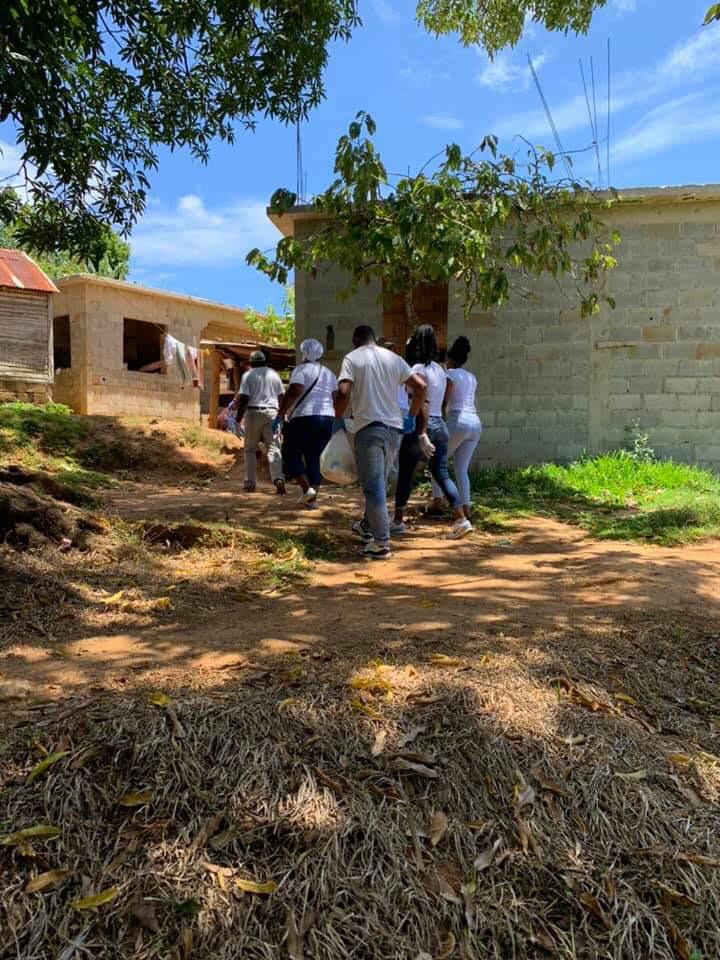
We are fortunate that our biggest food concerns are getting the foods we want, and maintaining high stock levels onboard in the event that we are a) subject to an enforced quarantine period onboard, as on other islands or b) forced to leave, and subsequently make a long passage with a potential 14 day quarantine period at the end or c) Dave is right that the risk of international food supplies breaking down is non-trivial, in which case we want to have a stock of the few imported luxuries we buy just in case. There have been reports (the veracity of which I can’t confirm) that Haitian migrants working in the Dominican Republic are trying to swap their work boots for food as they are not entitled to government support. For us quarantine is mostly an inconvenience, with some low-level anxiety about where we will be in the next few months, for others a daily struggle to meet basic needs.